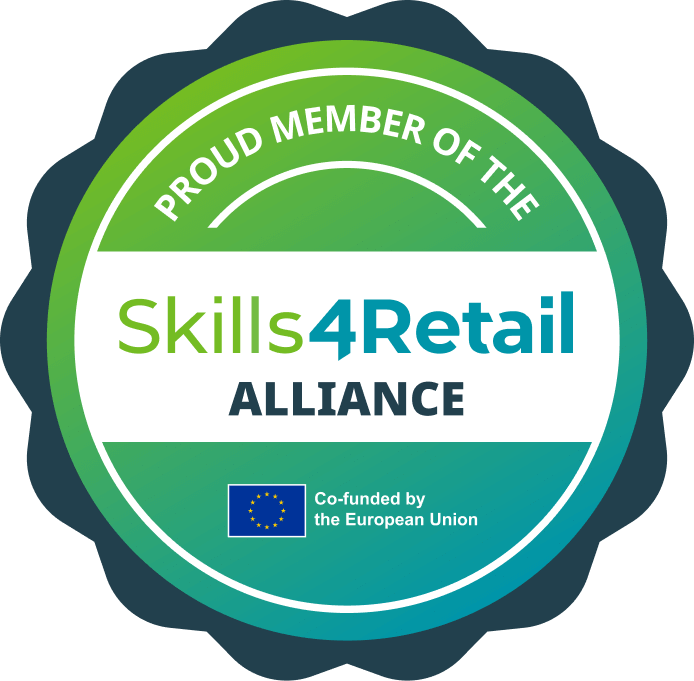Green Skills: Still “Green” or Something More?
At the European Final Conference of the GREEN Project, one question kept popping up—in panel discussions, coffee breaks, and audience Q&As:
Are we still calling them “Green Skills”? And should we?
The event, titled “Vocational Skills: Driving the Green Transition,” brought together a mix of voices—experts, educators, policymakers, and industry pros—who all recognised the crucial role of skills in building a sustainable future, even if the conversation revealed some questions about how we define and communicate them.
And that’s where things got interesting. Because while everyone agreed on the importance of skills, there was a growing sense that the language we’re using to talk about them might be part of the problem.
“Green Skills” has become a familiar term, especially in vocational education and training (VET), but as the sustainability transition speeds up, so does the need to rethink how we talk about the skills behind it.
Are “Green Skills” still the best way to describe what’s needed to power this shift? Or is it time for a new definition—one that matches the complexity, urgency, and opportunity of the moment?
It’s not just a semantic question. The words we use shape how we teach, train, invest, and ultimately value the skills required to change our world. So, let’s take a moment to ask: What do we really mean when we talk about Green Skills? And are we being ambitious enough with the term?
What Do Green Skills Really Represent Today?
At present, Green Skills are often defined through a narrow lens—tied to energy efficiency, renewables, or environmental technologies. These are of course essential. But reducing Green Skills to a checklist of technical abilities misses a deeper truth: these skills are not limited to “green jobs”—they are foundational to nearly every job.
From agriculture to AI, catering to construction, we are witnessing a seismic shift where every job can and should be a green job. And yet, we still treat Green Skills as a niche or a specialist track. Is it any wonder then that workers feel unprepared, or that vocational training (VET) is still seen as a “Plan B” rather than a first choice?
Green Skills as a Social Construct
Perhaps the most overlooked aspect is that Green Skills are also social skills. They are about collaboration, systems thinking, ethics, and resilience. They should equip individuals to solve problems in teams, challenge unsustainable practices, and connect the dots between environmental needs and social equity.
This is why many are beginning to ask: Should we still call them “Green”? Or do we need a new language—one that acknowledges their breadth and their intersection with the digital world, lifelong learning, and social transformation?
As the scope of Green Skills expands to include not only technical knowledge but also transversal, civic, and ethical dimensions, it becomes clear that the label itself may no longer do justice to their role.
Some now propose terms like Sustainable Skills, Resilience Skills, or Transversal Green Competencies. These alternatives invite us to move beyond technical definitions and towards skills that foster adaptability, critical thinking, and care for the commons—skills that are as much about people as they are about the planet.
Why Society Needs These Skills—Urgently
Whether we stick with “Green Skills” or update the terminology, the need remains the same: we must equip people to thrive and contribute meaningfully in a changing world.
And yet, we’re not doing enough. Workers feel that upskilling is out of reach—blocked by poor funding, misaligned curricula, and patchy access. In many places, green jobs pay less, are less secure, or lack prestige. There’s also a trust gap: people don’t believe their current skills are relevant or that they can pivot without losing status or income.
In this climate of uncertainty, anxiety replaces action. And without action, the green transition stalls.
Making Skills Matter: From VET to Empowerment
Vocational Education and Training has a critical role to play, but it must evolve. Teachers and trainers are not just instructors—they are changemakers, tasked with empowering the next generation of Green Ambassadors. But to lead, they need the right tools, recognition, and support.
Let’s be clear: the transition won’t happen through technology alone. It will happen through people—through a workforce that believes it has a future in this new world.
So what do we do?
Next Steps: From Rethinking to Rebuilding
- Revisit the Definition – Update the benchmark for Green Skills to reflect today’s challenges and tomorrow’s possibilities.
- Unite the Fragmented Landscape – Align tools, policies, and projects so we stop reinventing the wheel and start building the machine.
- Invest in Educators and VET – National investment in training, digital integration, and career pathways for teachers is non-negotiable.
- Close the Communication Gap – Between industries and training providers, so we match skills with real needs.
- Make Access Real – Flexible, funded, and inclusive training programmes are the only way forward.
Conclusion: More Than a Colour
Green is more than a colour. It is a mindset. It represents hope, resilience, and responsibility. Whether we call them “Green Skills” or not, we need to ensure they are available to all, valued by all, and embedded in every part of society.
Because in the end, skills don’t just shape the economy – they are about quality of life, community resilience, and individual purpose —they shape lives.
And the ones we need most right now are not just green. They are visionary.
Pledge Your Support for Retail Skills
Skills4Retail is more than just a project—it’s a movement dedicated to strengthening the retail sector across Europe. If your organisation is passionate about supporting digital transformation and sustainable growth in retail, consider joining the Skills4Retail Alliance. By pledging your support, you’ll be part of a community that is actively shaping the future of European retail.
🔗 Pledge your support today: Join our alliance


 Join our mailing list
Join our mailing list
